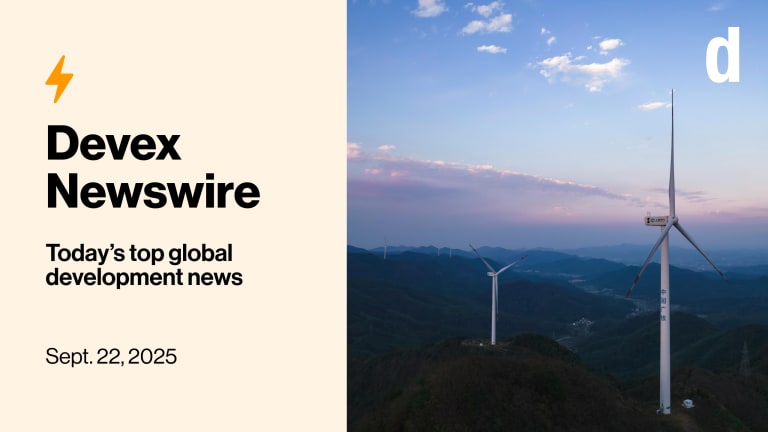
KATOWICE, Poland — Indigenous communities at the COP24 climate talks are looking to strengthen their role in informing global climate change efforts, while also protecting their right to pursue development efforts that reflect these new challenges.
Spurred by indigenous communities, the Subsidiary Body for Scientific and Technical Advice — a permanent group offering scientific and technical advice to the larger climate convention — introduced a resolution last week to create a Local Communities and Indigenous Peoples Platform. The platform would include a 14-person working group, with half of the members drawn from indigenous communities.
“Policies ... should be enhanced so that [at] the global down to the local level, indigenous peoples will be equally involved in shaping the solutions to climate change.”
— Victoria Tauli-Corpuzaks, U.N. special rapporteur on the rights of indigenous peoplesThat body would look for opportunities for indigenous communities to help guide broader efforts to adapt to or mitigate climate change. But it would also help elevate the development priorities of indigenous communities as they attempt to navigate the effects of climate change on their own land.
Devex spoke to Victoria Tauli-Corpuz, the U.N. special rapporteur on the rights of indigenous peoples, about what motivated the SBSTA recommendation and what impact it will have if it is adopted this week by the COP24 delegates. The conversation has been edited for length and clarity.
What is the background on this recommendation?
One of the things we have been pushing for some time now is really to set a platform within the climate change processes that acknowledges and includes participation of indigenous peoples. It started snowballing and I think it’s a good thing.
I think the [SBSTA recommendation] was good, because it fully acknowledged the U.N. Declaration on the Rights of Indigenous Peoples as the framework for the operation of the platform. Secondly, it ensured the participation of indigenous people.
Finally, there is a formal structure within the climate change convention that allows for equal participation of indigenous peoples with the governments. There’s an acknowledgement that the traditional knowledge systems of indigenous peoples are going to contribute to the solutions of climate change. The policies related to that should be enhanced so that [at] the global down to the local level, indigenous peoples will be equally involved in shaping the solutions to climate change.
What will this look like in practice?
The fact that there is this facilitating group and their decisions will be taken into account — maybe under the subsidiary body or SBI — should mean that in the decisions, there will be decisions directly referring to the contributions, as well as to support the further reinforcement and enhancement of these traditional knowledge systems. That’s my hope.
What impact do you think it will have?
“Indigenous peoples are on the frontlines of adverse impacts of climate change. Many are living in very fragile ecosystems.”
—Indigenous peoples are on the frontlines of adverse impacts of climate change. Many are living in very fragile ecosystems. The impacts are very much felt — and the rights to life and to water are the rights that are very much affected.
While indigenous peoples are very vulnerable, they are also contributing significantly in mitigating climate change. Some of the best-kept ecosystems are overlapping with indigenous territories. If their rights are respected, the chances to sustain and protect ecosystems are much higher. They can contribute to solving this crisis that we are all facing.
How will this impact the development agenda of indigenous communities?
That means that all the rights contained there — which includes the rights to own and have control over their lands and resources, their right to self-determination, to determine their economic, cultural, and social development — are all there. That means that if indigenous people are proposing developmental alternatives, which are implemented at their own level in their territories, this should not be undermined or illegalized by the governments.
“If indigenous people are proposing developmental alternatives, which are implemented at their own level in their territories, this should not be undermined or illegalized by the governments.”
—The situation we see now is a lot of their livelihoods are illegalized. We have a lot of cases of criminalization and impunity against indigenous people. I just came from Ecuador, where a lot of indigenous people are in prison because they have asserted their authority. Hopefully, with this kind of platform, those issues will come into the picture and the governments will be pushed to really protect and respect the rights of indigenous peoples.






